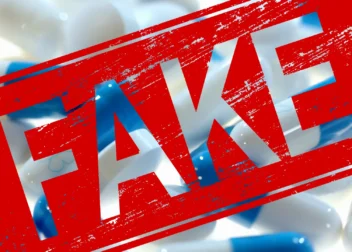‘Inspections Resembling Raids’: RSS Affiliate Urges Centre to Overlook ‘Minor Lapses’ in Pharma Firms
Source: News18.com
Laghu Udyog Bharati has clarified that the industry needs a “minimum three-year period” to upgrade itself to Schedule M or WHO-GMP standards, calling the government’s deadline of six months to one year “impractical”
RSS affiliate Laghu Udyog Bharati (LUB) has asked the Union government to follow a “considerate approach” while inspecting micro and small pharma firms.
LBU has cautioned the government about the potential for medicine shortages in the upcoming months, attributing this concern to the atmosphere of “apprehension” generated by ongoing inspections and notifications of closures or production halts.
This is the second letter that LUB has written to the Centre expressing concern over the ongoing risk-based inspection drive across India. The previous letter, written in July, was retracted, saying it was sent due to some “confusion”.
In the latest letter titled ‘Urgent Action Required to Preserve the MSME Pharma Industry” — sent to Union Health Minister Dr Mansukh Mandaviya on October 5 — LBU has asked the government to avoid “minor lapses”.
It also argues for a “minimum three-year period” for the industry to adapt to Schedule M, calling the government’s deadline of six months to one year “impractical”.
The Ministry of Health and Family Welfare, via its drug regulatory wing — the Central Drugs Standard Control Organisation (CDSCO) — has been conducting inspections at certain shortlisted companies. These are called risk-based inspections and were triggered after the World Health Organization and several other countries, including Gambia, Uzbekistan, Marshall Islands, Micronesia and the US, raised doubts over the quality of Indian medicines.
LBU EXPECTS “FAVOURABLE RESPONSE”
The letter, also marked to the health secretary and Drug Controller General of India, emphasises “patient safety and health over minor documentation discrepancies”.
“While we wholeheartedly support risk-based inspections initiative, we have observed that, in the last 30 days, several MSME units were inspected in a manner resembling a raid,” Ghan Shyam Ojha, all-India president of LBU, wrote in the letter.
Ojha, in the letter accessed by News18, said: “We advocate for a more considered approach to inspections, especially for small shortfalls (sic)”.
During the inspections, the Union government shut down the units and production lines when not found complying with good manufacturing practices. However, LBU demands a change in its stance.
Concluding the letter, LBU warned, “…shortages of medicines may be observed in the coming months which poses a threat to humanity, as our manufacturers are in deep dilemma and it has created fear factor among all of us”.
The body, a registered national-level organisation working for the cause of micro, small and medium enterprises, has requested an appointment with the minister to discuss the issue further.
While confirming the dispatch of the four-page-long letter, Ojha told News18 over a call that LBU is awaiting the government’s response. “We expect a favourable response considering the future of the Indian pharma industry which has flourished on its strong foundation of MSME.”
UPGRADE TO SCHEDULE M NEEDS MINIMUM 3 YEARS
In August, the health ministry said drug manufacturers with annual turnover of more than Rs 250 crore have to comply with the standards of Schedule M (which are equivalent to WHO-GMP certification) within six months and for companies with less than Rs 250 crore turnover, the timeline will be a year.
However, in the letter, LBU has clarified that the industry needs a “minimum three-year period” to bring changes. It said that the draft rule of 2018 shall not be made applicable on a “hue and cry basis”.
“It would be agreed that it took 77 years to reach this point, therefore upgradation of 8,000 units to Schedule M within one year is not practicable.”
According to the letter, the pharma industry is already subject to multiple regulations such as narcotics, labour, pollution (Central and State), industries and more.
“All these bodies oversee industry operations daily. If each of them were to initiate risk-based ‘raids,’ it would be untenable.”
TRANSPARENT ANALYSIS
The body, which represents micro and small industries in over 400 districts, used an instance of US-based drugmaker Abbott — without naming the firm — to showcase how “large corporates” with top-class approvals also “default regularly on quality parameters”.
It said “global practices need global evolution as all large corporates which are having USFDA, EU-GMP and minimum benchmark of WHO-GMP regularly defaulting on quality parameters and every month we have seen recall from such global markets as well as recently one MNC recalling approx. 6 million bottles of famous antacid suspension in the Indian market and earlier they issued public notices for recalling medicines due to wrong labelling (sic).”
LBU has urged the government to adopt “a holistic approach” to address the issue of “Not of Standard Quality (NSQ)” rather than “solely targeting the pharmaceutical formulation industry”.
“NSQ determinations involve several factors, including transportation breakages, quality reviews, laboratory analysis efficiency, storage conditions, and more,” it said.



